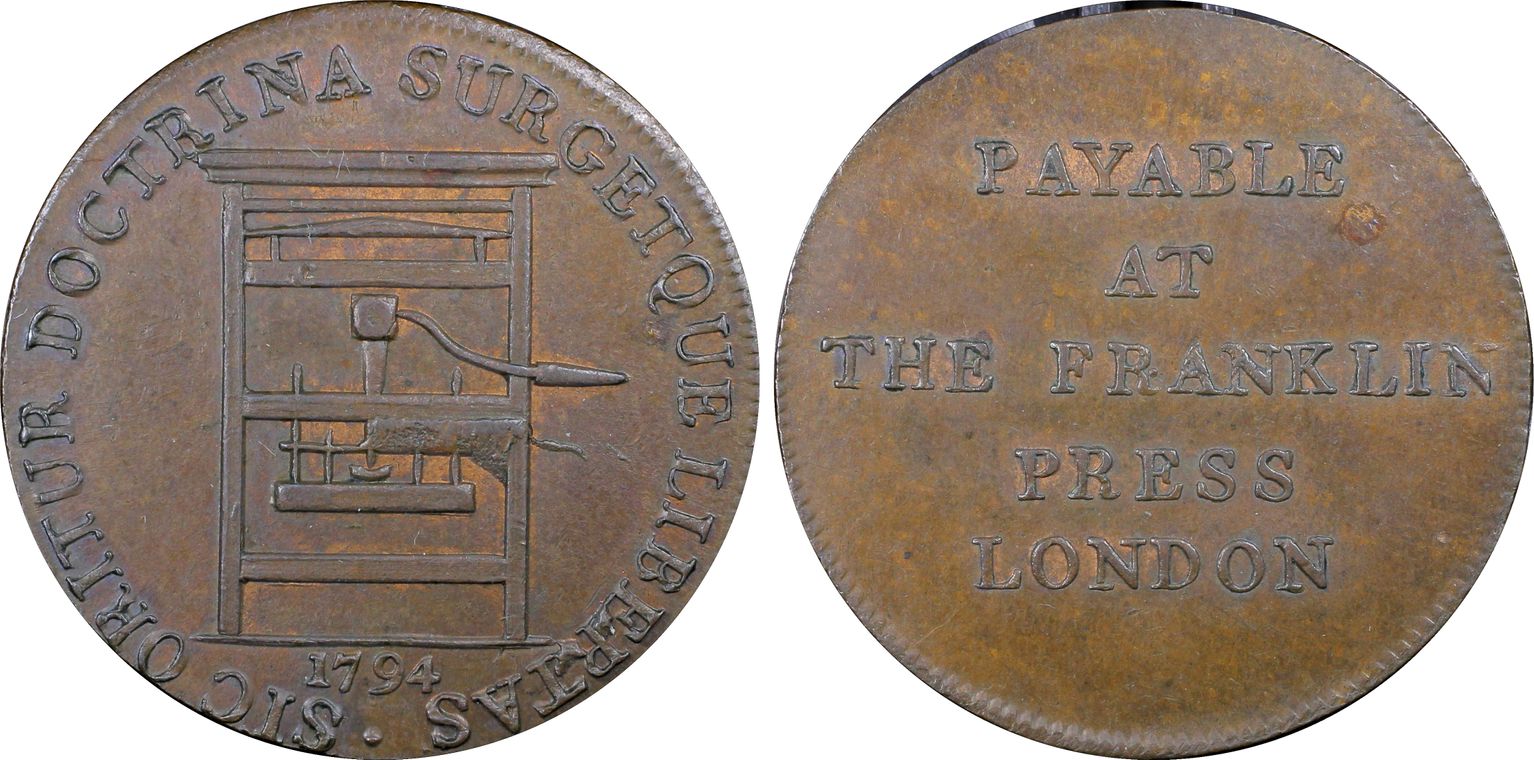1794 Tkn 1/2P Franklin Press, BN MS62BN 认证号26117245, PCGS号630
专家评论
Ron Guth
The 1794 Franklin Press Token belongs to a series of British-made pieces known as "Conder" Tokens (Halfpenny- and Penny-sized tokens made for sale to collectors and sometimes used as advertising tokens by certain merchants). Although the Franklin Press Tokens probably never circulated in America, collectors have included them as a U.S. "Colonial" coin because of the reference to the American patriot and statesman, Benjamin Franklin.
The printing press illustrated on the front of this token is believed to be the same press used by Franklin while he worked in London, England as a journeyman printer for the firm of Mr. Watts of Wild street, Lincoln's Sun-Fields. The press appears to be a Blaew press (the first patent press made beginning in 1620). The "Franklin Press" (as it is now known) is on display as part of a re-created post office and print shop of the early 19th century in the Printing and Graphic Arts section of the National Museum of American History at the Smithsonian Institution. A plaque on the press bears the following inscription:
"From the above it will appear that it is 108 years since Dr. Franklin worked at this identical press." JUNE, 1833. Presented by Messrs. Harrild & Sons, printers' brokers, London, to John B. Murray, Esq., New York, November, 1841. |
The front of the coin displays the Latin legend "SIC ORITUR DOCTRINA SURGETQUE LIBERTAS" (Thus learning begins and liberty arises).
Die States:
The 1794 Franklin Press Tokens appear to have been struck from only a single pair of dies.
Early die states feature near-perfect dies, with just a small defect appearing in the area of ERT of LIBERTAS.
Intermediate die states show a fairly large break in the center of the obverse and a squiggly break coming off of the side of the press beneath the long handle.
Late die states show another break in the lower left area of the press. The die defect at ERT becomes prominent.
Condition comments:
Most Franklin Press tokens are found in high grade, indicating that they were never intended to circulate or that they circulated little. Many Uncirculated examples are known and very few examples appear below About Uncirculated.
状况普查 了解更多
| #1 MS66BN PCGS grade |
| #2 MS64BN PCGS grade |
| #2 MS64BN PCGS grade |
| #2 MS64BN PCGS grade |
| #2 MS64BN PCGS grade |




















